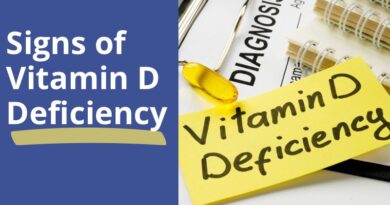
Understanding Normal Vitamin D Levels: What Should Yours Be?
Vitamin D, a crucial nutrient that supports various bodily functions, is unique in that our bodies can produce it through exposure to sunlight. Yet, it is important to know and maintain the right levels of this essential nutrient in our body.
The amount of vitamin D in your body is determined through a blood test that measures the level of 25-hydroxyvitamin D, often written as 25(OH)D. This is the most reliable way to measure stored vitamin D. The concentration of this compound in your blood reveals whether you’re getting enough exposure to sunlight, consuming enough vitamin D through your diet, or if supplementation is necessary.
According to the U.S. National Institutes of Health, the following are the established ranges for vitamin D levels:
- Deficiency: Less than 12 nanograms/milliliter (ng/mL)
- Insufficiency (may not have symptoms, but could be at risk): 12-20 ng/mL
- Sufficiency (generally considered adequate for bone and overall health): 20-50 ng/mL
- High (possibly harmful over the long term): More than 50 ng/mL
However, these are general guidelines and ideal levels can vary depending on individual health conditions and lifestyle factors. Some health professionals recommend aiming for a level between 30-50 ng/mL for optimal health.
Please note that despite the crucial role of vitamin D in our health, it is possible to have too much of it, a condition called vitamin D toxicity or hypervitaminosis D. This can occur from excessive supplementation and can lead to hypercalcemia, a condition characterized by too much calcium in the blood, leading to nausea, vomiting, weakness, and frequent urination.
In conclusion, maintaining an adequate vitamin D level is key for optimal health. If you suspect that you’re deficient, or are experiencing symptoms related to vitamin D deficiency, it’s essential to consult a healthcare provider. They may recommend a blood test to confirm if you are indeed deficient in vitamin D and suggest appropriate steps to correct it.
References:
- Vitamin D: Fact Sheet for Health Professionals. National Institutes of Health.
- Vitamin D: The “sunshine” vitamin. Journal of Pharmacology & Pharmacotherapeutics.
- The 2011 report on dietary reference intakes for calcium and vitamin D from the Institute of Medicine: what clinicians need to know. The Journal of Clinical Endocrinology & Metabolism.
- Vitamin D testing and treatment: a narrative review of current evidence. Endocrine Connections.
- Vitamin D Deficiency. New England Journal of Medicine.



